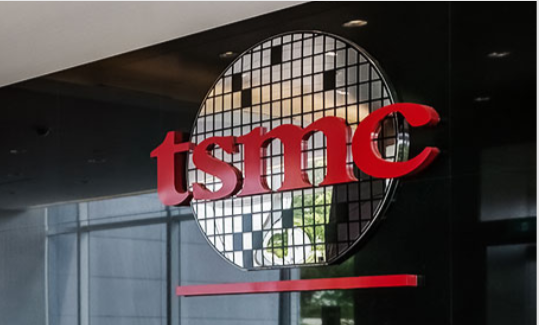For the past couple of decades, the United States and countries around the world have felt something akin to startup fever. Millions of young and inexperienced entrepreneurs are excited at the prospect of starting an innovative new business of their own. Millions of savvy and new investors are eager to cash in on the next Google or Apple. And culturally, we’re all fascinated to hear stories about underdogs that become tech unicorns and innovative geniuses who come up with world-changing ideas.
This startup culture has led to ingenious developments, widespread economic growth, and accessible new technologies for millions of other businesses. But what are the future prospects of this trend? Will startup culture grow even stronger from here? Or are we in a bubble that’s about to burst?
Factors for Startup Culture
Let’s start by looking at the factors responsible for the development of this hot startup culture.
- Explosive potential. One of the obvious points of interest here is the potential for explosive growth that each startup offers. Today’s tech giants, which have become household names worth billions, or even a trillion dollars, started in a garage with just a handful of people. Investors are thrilled at the idea of buying shares of a tech startup for $5,000 and turning that into $500,000 in less than a decade. This doesn’t happen often, but it happens enough that people are hungry to find promising young startups and watch them grow.
- Underdog stories. We all love underdog stories, and many startups embody this idea. An entrepreneur with a cool idea and a few thousand dollars changes the world with their creative new app and ends up becoming a multi-millionaire. It’s a great story, and one we’ve seen unfold many times over. It makes us more likely to support people trying to achieve this dream and makes us think about trying to achieve it for ourselves.
- Accessibility. It’s hard to argue that it’s “easy” to launch a tech startup, but it’s certainly a more accessible opportunity for entrepreneurs than they’ve had in the past. This is especially true now that remote work is becoming more popular, and tech companies don’t have to invest much money into real estate or infrastructure. Anyone with a promising idea has the potential to create a startup all of their own – and even if they don’t, they can fantasize about the possibilities. This draws us further into the admiration of startups and entrepreneurs.
- Novel technologies. Our culture loves novel technologies and it’s easy to see why. When a fancy new app allows you to save an hour a day on manual tasks, or when you can share memes with your friends in some completely innovative way, it improves your quality of life. On a less sexy level, new technologies also improve workplace efficiency, helping countless entrepreneurs in other industries create more jobs and increase productivity. We love to see new businesses bring these technologies to light.
- Freedom and flexibility. Startups are representative of freedom in some ways. These companies spring forth from the imaginations of people who want to change the world – and often want to create their own work cultures and environments. Most people highly value flexibility and autonomy, and startups embody this.
- Challenging the status quo. We can also see startups as challenging the status quo. New startups often introduce agility into stagnant industries, forcing long-established juggernauts to change or become obsolete. This novelty breathes new life into the market and helps us see things in a new light.
Is There Any Pushback?
So are there any factors working against the propagation of startup culture?
The answer is a resounding “yes.”
- Anti-monopolistic and anti-capitalistic sentiments. We’re beginning to distrust tech companies and be more skeptical of entrepreneurs. In recent years, there’s been some degree of backlash against powerful companies, wealthy individuals, and industries dominated by a handful of superstars – even if those superstars created the entire industry from scratch. Anti-monopolistic and anti-capitalistic sentiments put a damper on the thrill of tech startups for many.
- CEO distrust. We’re also seeing a wave of distrust surrounding major tech corporations – and by extension, nimble tech startups. Platforms like Facebook, Google, and Twitter, have been susceptible to misinformation from fake news and nefarious sources. Many social media users are increasingly concerned with privacy. And millions of consumers look at new “free” platforms with skepticism, knowing that nothing is truly free. This hasn’t deterred any new startups from emerging yet, but if this trend accelerates, it could create a more hostile environment.
- Economic valuation issues. Investors are excited about new tech startups, but they might be a little too excited. Over the past decade, we’ve seen crazy new heights in the stock prices of promising tech companies. Price to earning (PE) ratios have skyrocketed, and many investors fear the forthcoming consequences of a practical economic bubble.
- Funding accessibility. Venture capitalists and angel investors are more than willing to stake their money on new startups – but not just any startup. Over time, investor funds have been concentrated more heavily into only the most encouraging ideas. This is a logical and understandable move, but it’s made it harder to enter into the space.
- Employment issues. Solid leadership can make any work environment tolerable, but many employees are reluctant to work for a young tech startup. Startups typically offer low pay (due to limited funding), while maintaining a very demanding work culture, and being relatively unstable. This makes it hard for new startups to create new jobs and attract new employees.
- Failure rates. We tend to glamorize the most successful startups that have arisen in the tech industry, but the failures are much less visible. The truth is, the majority of startups fail within just a few years of being started. Many of those entrepreneurs go on to start other businesses, eventually finding success, but the high rate of failure may eventually become more visible – and develop into a turnoff that weakens the influence of startup culture.
- Other types of businesses. Startup entrepreneurship is economically powerful, but it’s not the only way to pursue business management or entrepreneurship. There are plenty of other available routes, including buying an existing business, flipping businesses, starting a franchise and other options. We work with dozens of marketing business owners who simply white label our link building services, reselling them to their own business owner clients. It’s a hands-off approach with a great ROI for those with existing connections.
The Case for Stronger Startup Culture
So is it possible that startup culture could continue growing stronger in the coming years?
Most of the factors leading to the development and growth of startup culture are still here – and are in no danger of weakening anytime soon. New technologies are still exciting to the masses, investors are still thrilled at the idea of making money, and there’s no shortage of great ideas still to come. Ballooning stock prices tell us there’s no startup fatigue setting in, and the COVID-19 pandemic has only made startup entrepreneurship more attractive (due to remote work opportunities and limited potential for other types of businesses).
The Case for Weaker Startup Culture
That said, we could be in store for a reversal of momentum. Anti-monopolistic, anti-capitalistic, and privacy-conscious voices are seemingly growing stronger, pushing for stricter regulations and the dismantling of economic structures that currently support tech startups. If the entrepreneurial landscape becomes more hostile to up-and-coming young business owners, we may see lower rates of new business creation. Still, it would likely take many years, if not decades, for our collective fascination with startups to fade away.
No matter how you look at it, the strong startup culture in the United States seems poised to stay. There are threats that stand in the way of its utter domination, and there’s always the possibility of a mini-economic crash fueled by overinflated stock prices, but the fundamental factors that support our love of startups remain strong. It’s going to remain a good time to start a tech business at least for the foreseeable future.










